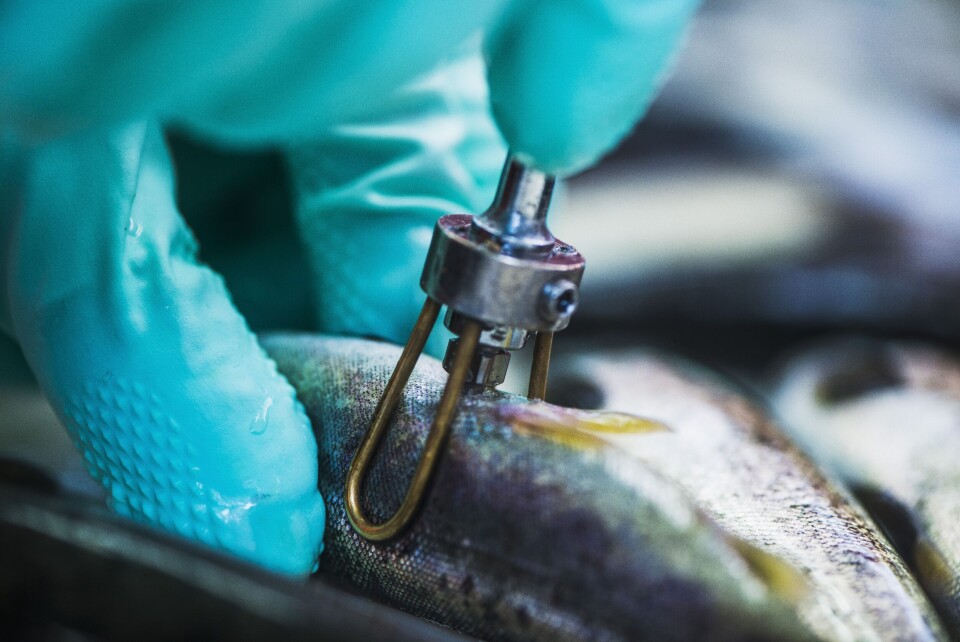
Vaccine cuts numbers of lice and their eggs in lab tests
Laboratory-scale tests by Norwegian and Cuban scientists have shown that a vaccine against lice led to fewer female lice on salmon and at the same time influenced the parasites’ ability to make eggs. The eggs that were made and hatched were further weakened in the second generation.
In the project, led by Nofima project manager Jaya Kumari and conducted in collaboration with researchers at the Center for Genetic Engineering & Biotechnology (CIGB) in Cuba, a recombinant vaccine against salmon lice produced at the CIGB was tested.
The results of the vaccine trial with subsequent lice infection tests showed that the lice vaccine reduced the number of female lice and female lice reproduction in the first generation, with subsequent effects on their offspring.
Few side effects
Surveys of the fish showed that the vaccine caused few side effects to the salmon.
Researchers said the project was a very important preliminary documentation of the vaccine as a preventive measure that could contribute to future sustainable and profitable growth in the salmon industry.
However, further validation of the vaccine is necessary to investigate the long-term efficacy of controlling salmon lice infections in an environmentally friendly and sustainable manner.
Learn more about the project here.























































